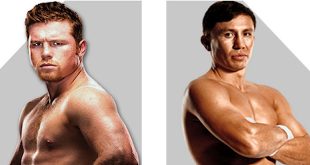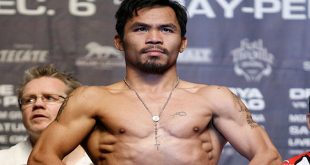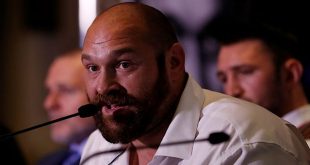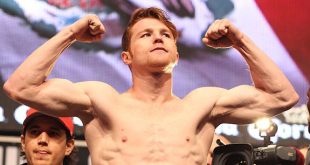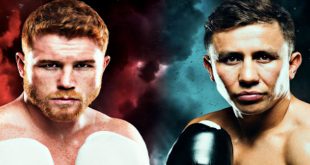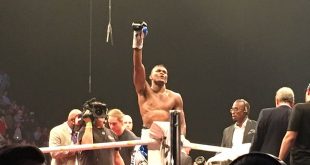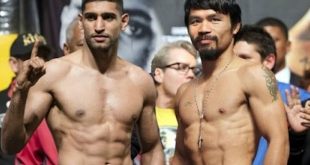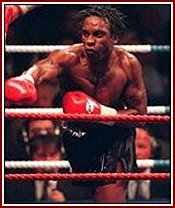 |
Michael Watson’s career never quite took off in the way many experts predicted after his impressive triumph over Benn. He was put in against and well beaten by WBA middleweight champion Mike McCallum, though he earned praise for a valiant effort. Following that loss, he notched up a few credible wins but sadly seemed to fade back into obscurity as he was once again forced to ply his trade on non-televised under-cards, fighting for peanuts. Watson was left baffled as to why he was still out in the cold and became increasingly bitter; only a couple of years earlier he |
had systematically taken Benn apart, now he was watching the man he beat convincingly topping bills and raking in the kind of money he could only dream about. It really didn’t seem fair, but how many things in life are fair? Benn was a superstar, Watson wasn’t. It was as simple as that. He may well have been the superior boxer but outside of the boxing purists who appreciated his flawless application of the sweet science, he did not appeal to the bloodthirsty majority. The so-called boxing fans who have an unrealistic perception of the sport from watching Rocky movies and expect the same kind of blood and guts action in real life. Nigel Benn satisfied that crowd with his menacing demeanor, charisma and destructive fists elevating him (in a box-office sense) from the rest, Michael Watson included.
Chris Eubank was cut from the same cloth as Benn, he understood that there was more to boxing than just winning if you wanted to break into the mainstream, you also had to entertain. Eubank was a terrific showman; he took on the role of a villain and played it to perfection. He was hated, but people paid to see him lose, so in terms of being an attraction, that was just as good as being loved.
The global interest in Benn-Eubank II was huge. It was the fight everyone wanted to see. Eubank had captured the vacant WBO super middleweight title so this was the first time that two British world champions had fought each other; it was to be a historical fight. Benn was wired, the flames of revenge had been burning deep inside of him for three long years and now he was ready to let them consume and destroy Eubank. He was desperate to even the score. Eubank on the other hand seemed overconfident, he simply believed he had Benn’s number and a repeat victory over him was a foregone conclusion.
This time around though, Benn was far more calculated. In the past, he had let his aggression control him, but now he was unleashing his power in measured, precise bursts, catching the cocky Eubank off guard. It has been said that Benn-Eubank II was more of an occasion than a fight. While it’s true that the rematch didn’t quite match the excitement and drama of the original, it did have its moments. Benn pressed the action throughout and after twelve hotly contested heats, he appeared to have done more than Eubank, although there were several close rounds. It went to the scorecards and when a draw was announced, it was met with a chorus of boos. A look of disbelief washed over Nigel Benn’s face, his moment of redemption had been snatched away from him. He was crushed but walked away that night with a moral victory, a small comfort.
A great fighter needs a great rival to truly bring out the best in him; there would be no Nigel Benn without Chris Eubank and vice versa, just like Muhammad Ali and Joe Frazier their names will be forever intertwined. Unable to put away his next two opponents, Benn’s power was being questioned and his once fearsome aura was starting to diminish somewhat, in fact, by 1995, he was put in against the new bad boy of boxing, Gerald McClellan, by Don King as nothing more than a sacrificial lamb.
McClellan, nicknamed the “mini Mike Tyson,” was a brutal fighter who had stopped or knocked out twenty-nine of his thirty-one victims. Benn wasn’t given a hope. Fiercely patriotic though, “The Dark Destroyer” deeply resented the notion of an American coming over to his country and knocking him over without a fight. Make no mistake about it, he was incredibly fired up; maybe even more so than at any other point in his career, including the Eubank fights. Nigel Benn was ready to go to war.
As I’m sure most of you know, the fight between the two ended tragically. I don’t want to talk too much about it except to say that both men exhibited heart and courage above and beyond the call of duty in what was without a doubt one of the greatest fights of the 1990’s, even though it does not get the recognition it deserves for obvious reasons. Gerald McClellan was a true warrior, who paid a sad price for his bravery. I wish him and his family the best.
Nigel Benn was never the same after that fateful night; despite emerging victorious, he endured a savage beating from which he never recovered. It took everything out of him, physically and mentally. After a couple of easy defenses he found himself back in the ring with a man he had defeated years earlier: Thulane “Sugar Boy” Malinga. Benn just didn’t have enough left in the tank and dropped a clear decision. He was coming to the end of the road and he knew it. After back-to-back stoppage losses to Steve Collins in 1996, Nigel Benn called it a day.
He retired with a 42-5-1 record and will always be remembered for the excitement he brought to the ring, and for being one of the hardest punchers to ever grace the 160-168-pound weight divisions.
 Boxing News Boxing News
Boxing News Boxing News
